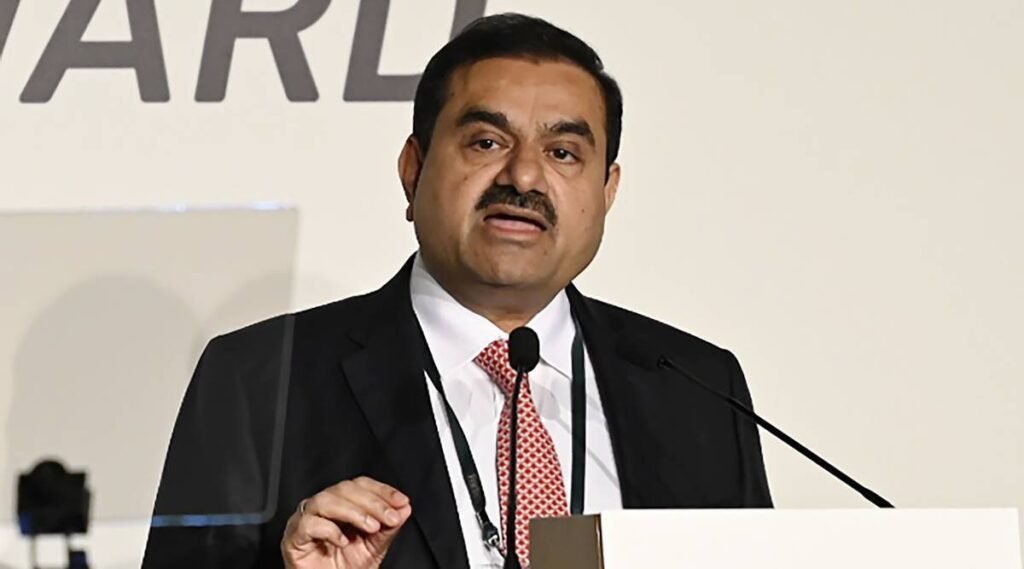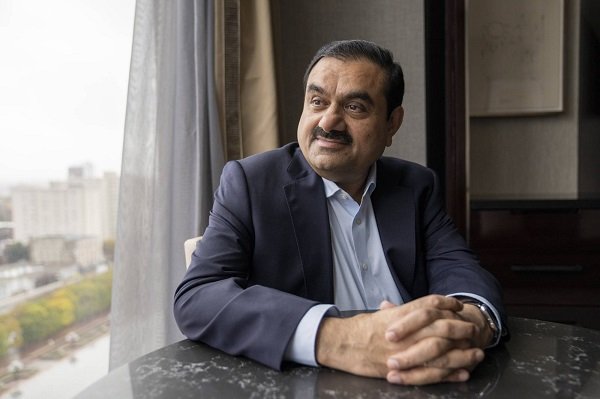NEW DELHI (India CSR): Gautam Adani, the Indian billionaire and chairman of the Adani Group, is facing serious allegations from the U.S. Department of Justice (DoJ) and the Securities and Exchange Commission (SEC). Accused of orchestrating a $265 million bribery scheme to secure solar power contracts in India, these charges have sent shockwaves across global markets and corporate circles. CEOs worldwide can draw critical lessons from this high-profile case, which underscores the importance of transparency, compliance, and corporate governance.

Here are 10 essential facts about the charges that every CEO should know to understand the case’s implications and its broader lessons for leadership and business management.
1. The Core Allegation: A $265 Million Bribery Scheme
Adani and his associates stand accused of paying $265 million in bribes to Indian government officials. The alleged aim was to secure contracts for solar energy projects worth over $2 billion across 20 years. These contracts reportedly formed a cornerstone of Adani’s renewable energy ambitions in India.
The charges highlight the risks of unethical practices in securing government contracts and the potential fallout when such actions come to light.
2. Charges Filed by the U.S. Department of Justice and SEC
Adani faces multiple charges, including:
- Foreign Bribery: Violating the U.S. Foreign Corrupt Practices Act (FCPA).
- Securities Fraud: Misleading U.S. investors about the group’s operations.
- Wire Fraud Conspiracy: Using communication channels to execute fraudulent activities.
The SEC claims Adani misrepresented critical financial information to investors in the United States, leveraging American financial systems in the process.
3. Why the U.S. Has Jurisdiction
Although the alleged crimes occurred in India, U.S. prosecutors have jurisdiction due to Adani Group’s business ties with U.S. investors and financial institutions. Transactions routed through American financial systems fall under U.S. oversight, showcasing the far-reaching implications of global financial operations.
4. Adani’s Denial and Defense
The Adani Group has denied all allegations, calling them “baseless” and affirming its commitment to compliance with laws in all jurisdictions. In a statement, the group said it adheres to the “highest standards of corporate governance.”
While such denials are common in high-profile cases, they underline the importance of proactive reputation management and crisis communication strategies for CEOs and their organizations.
5. Extradition Challenges for U.S. Prosecutors
Adani remains in India, and extradition is a complex legal process. Under the India-U.S. extradition treaty, Indian courts must evaluate whether the charges are valid under Indian law and assess concerns over political motivation or potential mistreatment in the U.S.
Adani could challenge the extradition process, potentially delaying legal proceedings for years. For CEOs, this highlights how international business leaders must prepare for legal challenges across jurisdictions.
6. Potential Penalties if Convicted
If convicted, Adani faces severe consequences, including:
- Up to 20 years in prison for securities fraud and wire fraud.
- Up to 5 years in prison for foreign bribery.
- Substantial financial penalties, potentially in the billions, depending on the scale of investor losses.
This case exemplifies the legal and personal risks that CEOs assume when their companies are implicated in wrongdoing.
7. Impact on Adani Group’s Business and Market Value
Following the charges, the Adani Group’s market value plummeted by ₹2.24 lakh crore (approximately $26 billion) in a single day. Shares of Adani Green Energy and Adani Energy Solutions hit 52-week lows, while Adani Enterprises and other subsidiaries also faced significant declines.
Global investors, including GQG Partners, are reevaluating their stakes in Adani companies. The crisis underscores how corporate scandals can erode shareholder value and investor confidence.
8. Kenya Cancels Adani Contracts Amid Scrutiny
In the wake of the U.S. indictment, Kenya’s government canceled $2.6 billion worth of deals with the Adani Group, including a 30-year concession to operate Nairobi’s main airport. Kenyan officials cited concerns over corruption and transparency.
This international fallout demonstrates the broader reputational risks that companies face when embroiled in legal controversies. CEOs must consider how ethical lapses in one region can impact global operations.
9. Political and Regulatory Backlash in India
The charges have reignited political debates in India. Opposition leaders, including Rahul Gandhi, have called for Adani’s arrest and a Joint Parliamentary Committee (JPC) investigation. The Securities and Exchange Board of India (SEBI) is also probing whether the group violated disclosure norms.
The situation emphasizes the need for CEOs to maintain robust relationships with regulators and demonstrate transparency to avoid prolonged scrutiny.
10. Lessons in Corporate Governance and Compliance
The allegations against Adani highlight several key takeaways for CEOs:
- Prioritize Compliance: Ensure strict adherence to anti-bribery and anti-corruption laws, even in challenging markets.
- Transparent Reporting: Disclose material risks and investigations to investors to build trust.
- Global Accountability: Recognize that international business operations come with heightened scrutiny from multiple jurisdictions.
You Learn
The bribery and fraud charges against Gautam Adani serve as a cautionary tale for business leaders worldwide. Beyond the immediate legal and financial consequences, the case underscores the importance of ethical leadership, robust governance, and transparency.
CEOs must view this situation as a reminder that corporate reputations are built over years but can be dismantled in days. By learning from the Adani Group’s challenges, business leaders can better navigate the complexities of global operations and uphold the values of trust and integrity.
FAQs on Gautam Adani’s U.S. Bribery and Fraud Charges
1. What are the charges against Gautam Adani?
Adani is accused of bribery, securities fraud, wire fraud conspiracy, and misleading U.S. investors to secure solar power contracts worth $2 billion.
2. Why does the U.S. have jurisdiction over the case?
The U.S. has jurisdiction because Adani Group’s financial transactions involved U.S. investors and financial systems, triggering U.S. anti-corruption laws.
3. What penalties could Gautam Adani face if convicted?
Adani could face up to 20 years in prison for securities fraud and conspiracy, alongside significant monetary fines and restitution.
4. How has this impacted the Adani Group?
The charges led to a Rs 2.24 lakh crore market value loss, declining investor confidence, and the cancellation of international projects like those in Kenya.
5. What is the Adani Group’s response to the allegations?
The group has denied all charges, calling them baseless, and reaffirmed its commitment to compliance with global governance standards.
(India CSR)























